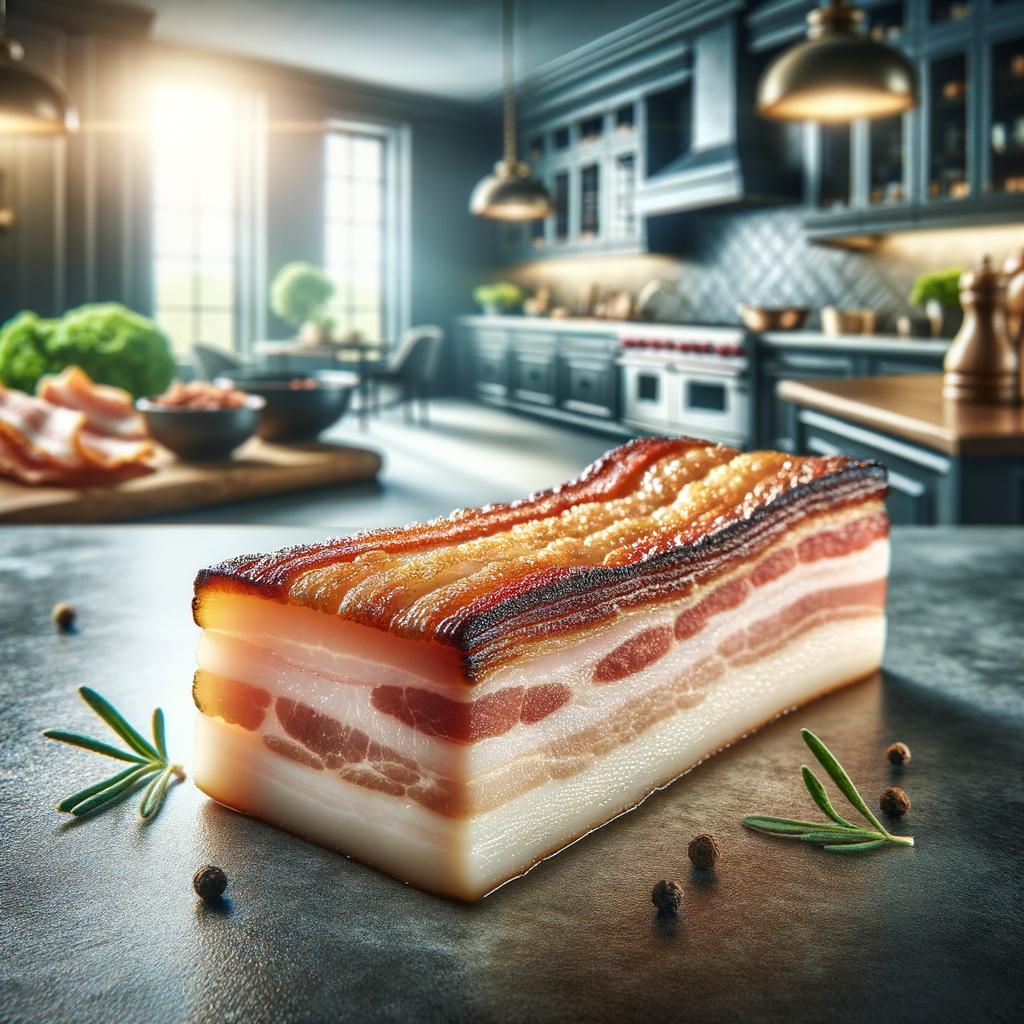Cooked Pork Belly or Bacon

Description
Pork belly, the sumptuous and succulent cut of meat from the belly of a pig, is a delightful ingredient that has been tantalizing taste buds for centuries. This cut is characterized by its alternating layers of meat and fat, which upon cooking, render into a rich and crispy treat. When cooked, its outer layer forms a crispy crust, while the inner meat remains tender and juicy. The flavor profile of pork belly is deeply savory, with a natural sweetness that is enhanced by its fat content. A unique attribute of pork belly is its ability to absorb the flavors of marinades, spices, and smoke, making it a versatile and delicious ingredient.
Primary Uses
Pork belly is a versatile ingredient used in a myriad of global cuisines. In Asian cuisine, it's often slow-cooked or braised and served with rice or noodles. In Western cuisines, it's commonly smoked and cured to create bacon, a breakfast staple. Pork belly is also the star in traditional Southern barbecue, where it's slow-cooked until it's fall-apart tender. Beyond its culinary uses, pork belly and bacon have cultural significance in many societies, often served during special occasions and celebrations.
History
The history of pork belly is as rich as its flavor. It's been a staple in Asian cuisines for thousands of years, notably in Chinese cuisine where it's often braised with soy sauce and spices. In the West, the practice of curing pork belly to create bacon dates back to Roman times. The popularity of pork belly has waxed and waned over the years, but it's currently enjoying a resurgence as chefs and home cooks alike rediscover its rich flavor and luxurious texture. There are countless tales associated with pork belly and bacon, from the "BLT" sandwich born out of post-WWII abundance in America, to the role of bacon as a valuable commodity in early economies.
Nutritional Information
Pork belly is a rich source of protein, vitamins, and minerals. It's high in B-vitamins, particularly B1, B2, B3, B5, B6, and B12, which are essential for various bodily functions. It also contains significant amounts of selenium and zinc. However, due to its high fat content, it's also calorie-dense and should be consumed in moderation. Compared to leaner cuts of pork, pork belly has a higher fat content, but it also has a more robust flavor profile. As with all foods, balance and moderation are key to incorporating pork belly into a healthy diet.

